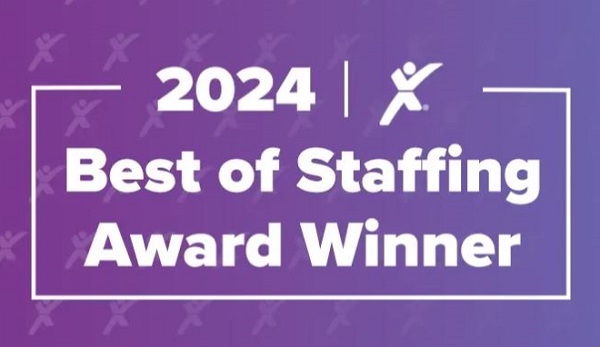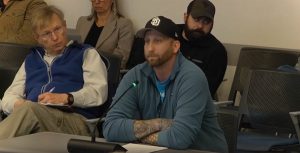Corporate layoffs, shutdowns push workers into building their own careers
6 min read
Presenter: While U.S. workers used to stay in one industry, and even stay with one company, attitudes about work started changing after mass layoffs in the 1980s. After the Great Recession and COVID-19 shutdowns, many U.S. workers are now seeking to build their own careers.
Nearly 90% of U.S. job seekers are working on the side, according to an Express Employment Professionals-Harris Poll. The changing work environment can be difficult for employers to navigate. From 945 Garfield in Eugene, Mike Murphy:
[00:00:32] Mike Murphy (Express Employment Professionals, Eugene): People want flexibility and it’s kind of a changing demographic that we’re seeing. Younger generations are saying, you know, ‘I want to be able to control my own schedule and control my own pay and control my destiny as far as, I don’t want some corporation to determine whether I can pay my rent or not and whether I can travel,’ and things like that.
[00:00:50] And the reality is: It’s hard to have a side hustle and not spend some time at your other job thinking about it, doing something about it. You know, the idea that, ‘Oh, I’m just going to work on my breaks and my lunch hours for that kind of work,’ it’s difficult.
[00:01:03] And there’s not a lot of clarity about how do you manage that process. And it’s just a slippery slope because the more time you give a person to work on another career and you’re paying them, things slide. They don’t have the same focus, the same drive, the same commitment, especially if the work they’re doing isn’t, quote, ‘their passion,’ right? It’s paying the bills, but it’s not what drives and gets them out of bed in the morning.
[00:01:25] The takeaway was that we’re behind the curve here; that this has gotten away from us as employers.
[00:01:30] Presenter: The challenge for employers is to find ways to align the worker’s passion with the employer’s needs. Mike Murphy:
[00:01:37] Mike Murphy (Express Employment Professionals, Eugene): You want to find what gets people excited. You want to try to incorporate that into work. I mean, one of the key tenets from the Gallup Q12 Engagement Surveys was, you know, I get to do something I get charged up about.
[00:01:48] And I think, once you start to provide that flexibility, people, it’s human nature, tend to want to put more of their energy in that area. And if that’s not the area that I’m hiring you for to produce revenue for my company, but it feeds your passion, but it doesn’t generate an ROI (Return On Investment) of some sort, I think that’s the challenge that companies have, because we do have work that needs to be done here.
[00:02:08] What drives this behavior is the idea that they can keep a foot in a place that’s going to pay their basic foundations while they flesh out this other thing in their life they want to do. People are going to continue to try to string together stuff and then the real question is: How does that work?
[00:02:27] Because again, we’re hiring full-time people with the intention that they’re with us, while they’re here we’ve got their mind with us, and their passion with us. I think that that’s going to be the challenge because I think there is an obligation at some point when you take a paycheck to be able to be as focused in that world as you need to be.
[00:02:43] Again, behind the scenes is all this history of companies not being loyal to their employees. You know, you get worked down to the bones and then you’re just disposed of. And so those are real questions about Corporate America and small business that need to be addressed.
[00:02:53] Very few companies actually have addressed this. They’ve just chosen to ignore it or just have turnover, because that’s what happens is, it gets to this point where you start to see diminishing returns in the business because the person’s not really engaged. You’re not really giving them a chance to really feed their passions.
[00:03:10] And so the cost of not addressing this is turnover. You know, turnover is costly. Turnover can cost companies 30% – 40% of salaries. And so the penalty for not addressing it is high.
[00:03:26] But from a company standpoint, having that bright red line at least gives you the conversation with your employees that if you had to part or if you had to make other additional concessions, that at least there was something in place to do that with. So it’s never a bad idea to have the policies in place.
[00:03:40] I think it’s our obligation to let people know that it is happening. At the very least, you know, what are two or three things you could do to protect yourself and/or to set yourself apart from the competitors in a way that attracts the kind of people that you want working for your company.
[00:03:55] There’s a lot of data points to talk about. It is happening. It’s been happening for a while. And this is the first time people have put the numbers on it and quantified it.
[00:04:02] I expect that there’ll be some bumpiness and some fighting and pushback. You see all these fights now about people wanting to work from home. And part of the reason people don’t want to have employees work from home, because they’re likely working on other projects besides company stuff.
[00:04:15] There’s even ethical conversations, right? There was a guy who was working for a law firm. And one of the tasks that he had to do was to pull up some documents and sort through them and do some matching up. And it was an eight-hour-a-day job. And through software, he was able to find a way to do it in an hour every day.
[00:04:32] The question was: ‘Do I tell my employer I found a way to do this in an hour? They think it takes eight hours. Is the employer entitled to because of my skill and knowledge to be able to do this faster if they think it takes eight hours and they’re happy with the hours, they think it’s worth eight hours of the day, do I stay at home and I just do it remotely and I take a check for eight hours?’ And so there’s a huge conversation about that.
[00:04:52] Presenter: Companies typically don’t design work with workers in mind. Mike Murphy:
[00:04:57] Mike Murphy (Express Employment Professionals, Eugene): Most companies don’t design work that starts from the frame of ‘Boy, the employees would really dig this.’ And so, that’s a bigger picture about how to come to design work that attracts people that are really excited about that. And how does that bring creativity to the workplace that engages people at a level that’s going to be, you know, it’s the whole ‘One plus one equals three.’ How do you get people in there that bring some things of their own that all of a sudden elevate the company beyond what you would expect them to do while you’re not draining every single life force out of them?
[00:05:29] We do have conversations, these dialogues between companies about these things. It doesn’t mean we’re going to solve it, but that we’re going to at least acknowledge that these things exist and that there should be some minimum things that should be done to address them. And being in a position where we could be that influencer is certainly an opportunity for us, which I’m grateful for.
[00:05:49] Presenter: Mike Murphy with the Express Employment Professionals – Harris Poll, revealing that 90% of job seekers are building their own long-term careers by pursuing additional work on the side.






